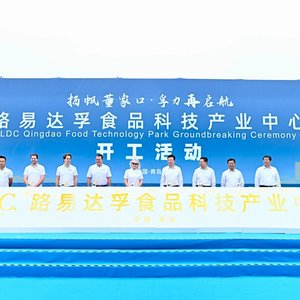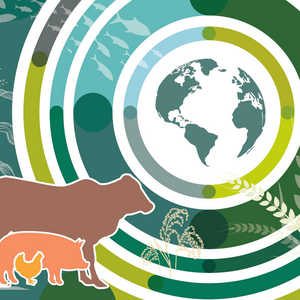Kona Blue Water Farms Awarded NMFS Grant to Research Alternative Proteins in Marine Fish Diets
Kona Blue Water Farms, Inc., the first integrated marine fish hatchery and open ocean mariculture operation in the United States, has been awarded a Saltonstall-Kennedy grant from the National Marine Fisheries Service (NMFS) for research into alternative protein sources to reduce the reliance on marine proteins in aquaculture feeds.
The project will look at three novel, sustainable sources of protein as a substitute for fishmeal in the diets of Kona Kampachi, a sashimi-grade, marine finfish grown in waters offshore of Hawaii. The three sources of protein to be studied include: microalgal by-products from biofuels production; a single cell protein made from food processing water; and, a Fish Protein Concentrate filtered from the wastewater of fish processing plants.
For the study, Kona Blue will substitute these various protein sources at different ratios into the Kona Kampachi diet, and compare growth rates, food conversion ratios and product quality to that of fish fed their standard commercial diet.
"This research addresses the fundamental challenge of developing marine fish diets that are both scalable, and sustainable," explained Neil Anthony Sims, co-founder for Kona Blue. "The study aligns closely with Kona Blue's commitment to continually strive to soften our footprint on the seas."
"By using by-products from other processes, we can re-use resources, rather than deplete them," said Jennica Lowell, Research Manager for Kona Blue and Principal Investigator for the project. "Not only do we lessen our reliance on Peruvian anchovies as a source of protein for our fish, but we also find value in by-products or effluents from other food processing or fuel systems."
Monterey Bay Aquarium's Seafood Watch Program, and a number of other aquaculture standards, use protein conversion efficiency of marine fish as a key metric of sustainability.
"Kona Blue aspires to use sound science to develop innovative solutions to the problems facing the oceans," said Sims. "It is imperative that we find alternative means of supplying healthful seafood to meet growing global demand. Developing more sustainable marine fish diets would alleviate one of the remaining concerns for scale-up of open ocean mariculture."
The research work is projected to begin by July this year. Results from the study will be shared with academics, industry, and the environmental and conservation communities through conference presentations and peer-reviewed publications.
Kona Blue Water Farms' applied research also focuses on areas such as new designs for open ocean net pens, hatchery production of imperiled native Hawaiian fish species, and satellite tracking of ocean current eddies in the lee of the Big Island. These research projects are supported by NOAA, USDA, the National Science Foundation and private industry partners.










